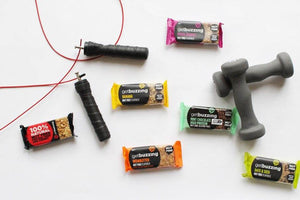Protein products make up 90% of the sports nutrition market, and with the percentage of people seeking high-protein foods growing from 39% in 2006 to 53% in 2014, it's not hard to see why. But do protein shakes actually aid weight loss?
What do protein shakes do to the body?
Protein shakes are one of the most widely used supplements on the market, but do we actually know what’s in them? Protein is a macronutrient made up of branched chain amino acids that the body uses protein for growth and repair.
By taking a protein supplement you are simply boosting your intake of protein and therefore improving your chances of recovery after a tough workout, especially if you lift heavy weights.
Do shakes work for weight loss?
Protein shakes are a supplement and should be taken as such. This means they should not be used as a replacement for a healthy, balanced meal comprised of real food. Dietary supplements are only used to bolster your already healthy diet and can help to increase the results you see from your hard training. If you do not workout, you do not need to take supplements or shakes and they won't help you lose weight. If you train consistently, protein shakes can help you build more muscle and see better results. Shakes do not inherently have the goal of aiding weight loss, although taking a protein shake after a workout can stop you from feeling hungry. You should still eat a healthy meal though! The only way to lose weight is to consistently eat a calorie deficit.
How much protein do I need?
To help you calculate whether protein shakes are a good addition to your weight loss plan it is worth calculating how much protein you already intake and whether there is the need for it. The recommended daily intake for a sedentary person is 0.36g per pound (or 0.8g per kilogram) of body weight.
For example, we have Sally, a 140lb (10 stone) woman who works 9-5 in an office job and the only exercise she gets is taking her dog for a walk each day. She would only need around 50g of protein per day, which is relatively low and very easy to achieve through diet alone. She would only need to eat one chicken breast (24g of protein) for lunch and tuna pasta (26g of protein) for dinner to reach her goal.
However, if you have an active lifestyle and go to the gym and train regularly, this recommended intake can rise to as much as 1g per pound of bodyweight
For example, we have Wendy who is also a 140lb woman, but Wendy is a nurse who's on her feet all day long and then goes to the gym each day after her shift to lift weights. She'd need up to 140g of protein per day, which can be hard to achieve through diet alone. This is where protein shakes come in. Wendy could have a protein shake containing 20g of protein after her workout to boost her daily intake and improve her recovery as well as eating a balanced diet consisting of natural, protein-rich foods like poultry, nuts, seeds, and beans.
This is the only way protein shakes should be used, and if Sally were to drink a protein shake each day as well as her chicken and tuna, it would not benefit her in any way and would not help her lose weight. So if you live a sedentary lifestyle like Sally, you should not use protein shakes to lose weight. However, if you live an active lifestyle like Wendy, protein shakes could help you achieve better results.



























